Life Cycle Projects for Kids
Educational DIY projects are a great way to occupy and entertain kids while teaching them valuable lessons about how the world works. These projects work particularly well when they involve science or biology. Kids usually love animal life and are quite curious, which makes it easy for them to absorb the information they learn or which is passed on to them while drawing, shaping or building things.
Life cycle projects, in particular, are used to document and help kids understand how certain creatures come to be what they know them as. These projects may be specific to each creature, but they can also be a great way to try and explain a whole type of being’s life cycle or even serve as a metaphor to teach kids about other situations.
Today we’ll look at different life cycle projects, both in style and subject. These include butterflies, plants, chickens and more, all of which are classic examples for life cycle projects.
Butterfly
Butterflies are beautiful creatures, which almost look magical through kids’ eyes, as they act as a key role in fairytales and animation movies.
A butterfly’s life cycle is quite fascinating and can be quite symbolic as well, even to adults who can hardly believe caterpillars can turn into beautiful, colorful butterflies, sometimes.
For that reason, this is a great place to start, as kids will surely be captivated by this incredible transformation.
Flip Book For The Sequencing Of A Butterfly Life Cycle
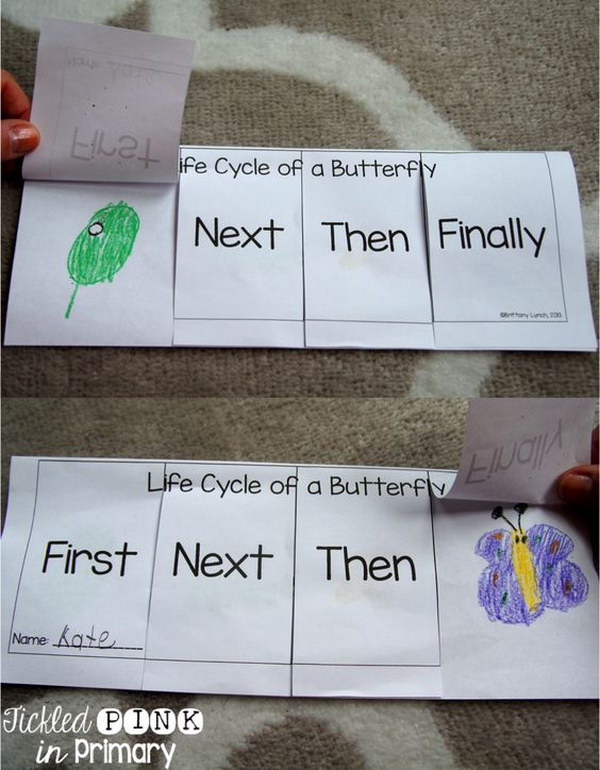
A flip book is always a great way to display and explain a life cycle, as it has the same gradual reveal concept. This one starts with a simple caterpillar and ends with a beautiful, colorful butterfly that will be revealed at the last stop. source
Life cycle of a butterfly, dragonfly and ladybug right on their wings/body
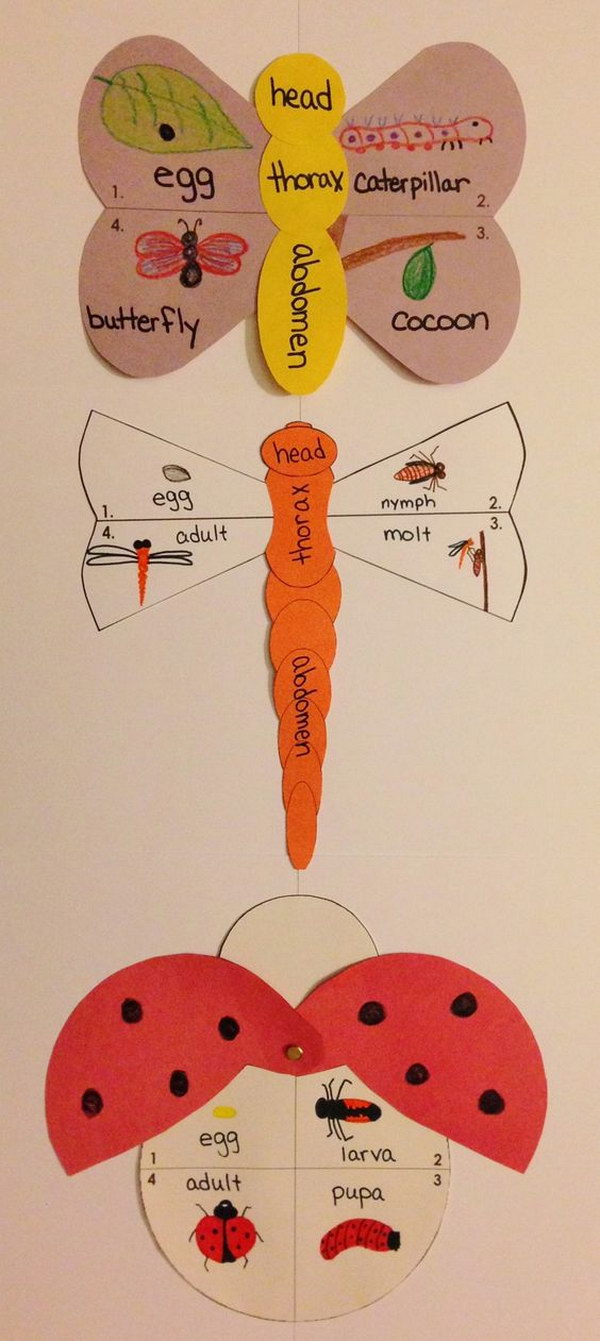
This is another simple, yet very visual and versatile project. Here you create the shape of your butterfly and then identify its body parts as well as the stages of its life cycle, killing two birds with one stone. source
Butterfly Life Cycle Project for Kids
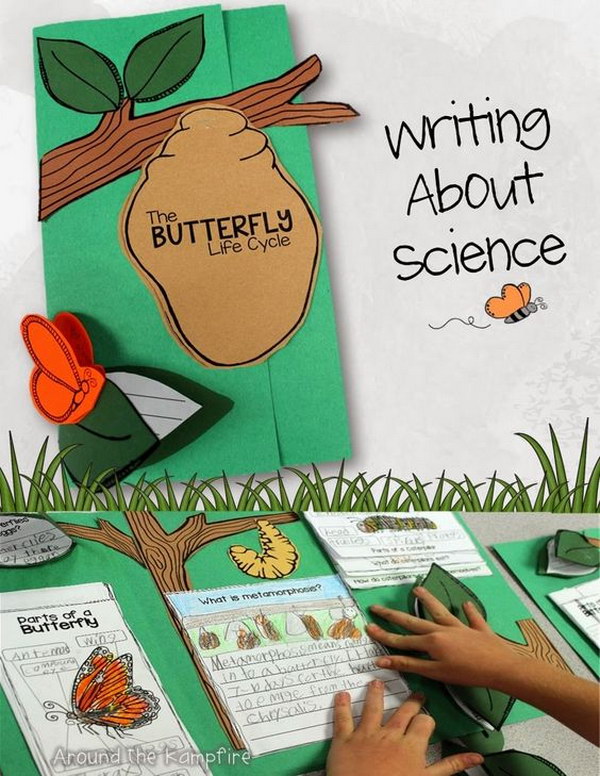
This is quite basically a whole decorative and informative board about butterflies, which includes a description of their body parts, the process of metamorphosis and other related subjects. source
The Butterfly Life Cycle – What is a Chrysalis Like
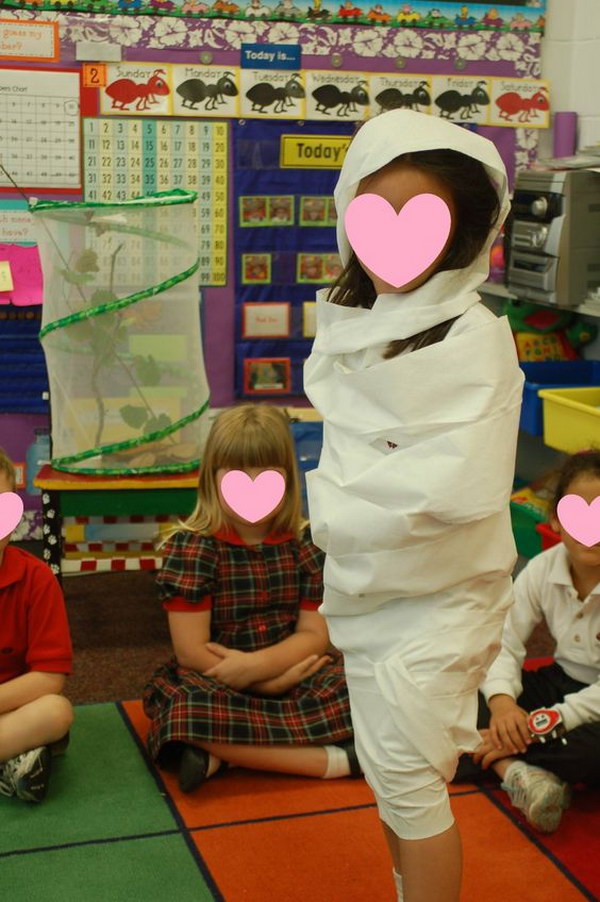
Now this is definitely a unique way to explain and even demonstrate the life cycles of butterflies, and the cocoon stage in particular. The project itself is for kids to simulate a cocoon by wrapping themselves in toilet paper or something similar and then break out, so that they know what it would feel like. source
Butterfly Life Cycle Paper Plate Craft for Kids
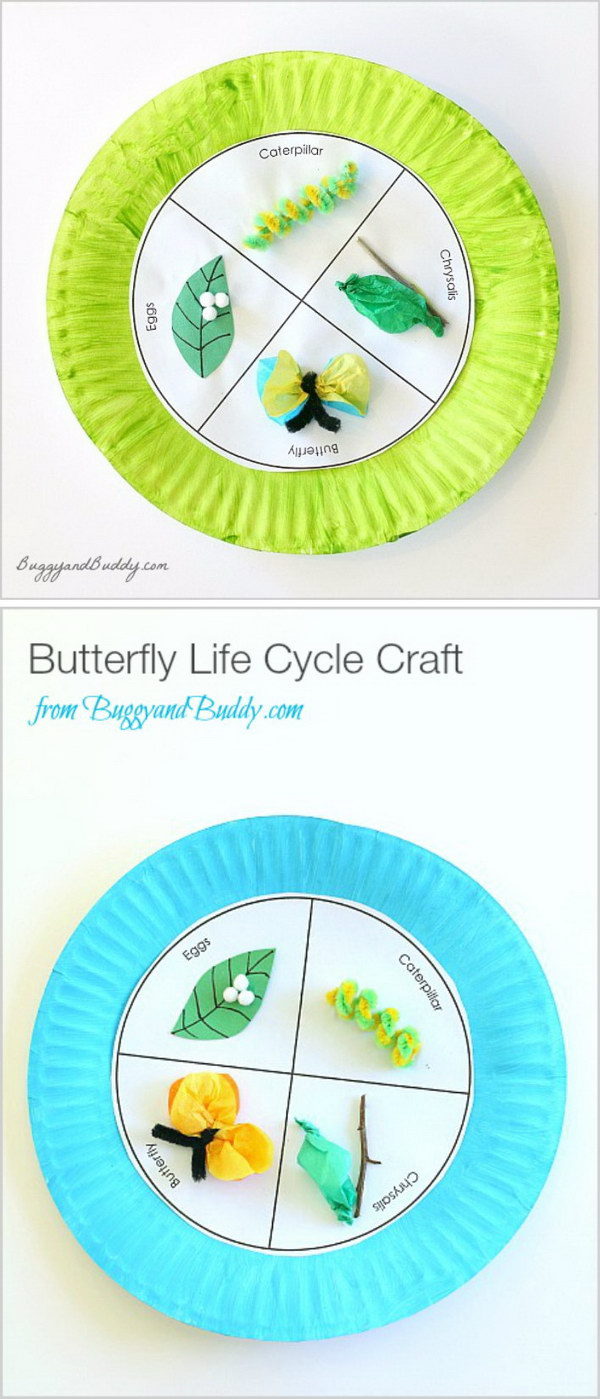
This 3D plate model is quite simple but also very visual and easy for kids to understand, as it clearly displays representations of a butterfly’s life cycle stages in a way that is colorful and appealing. source
Butterfly Life Cycle Cup
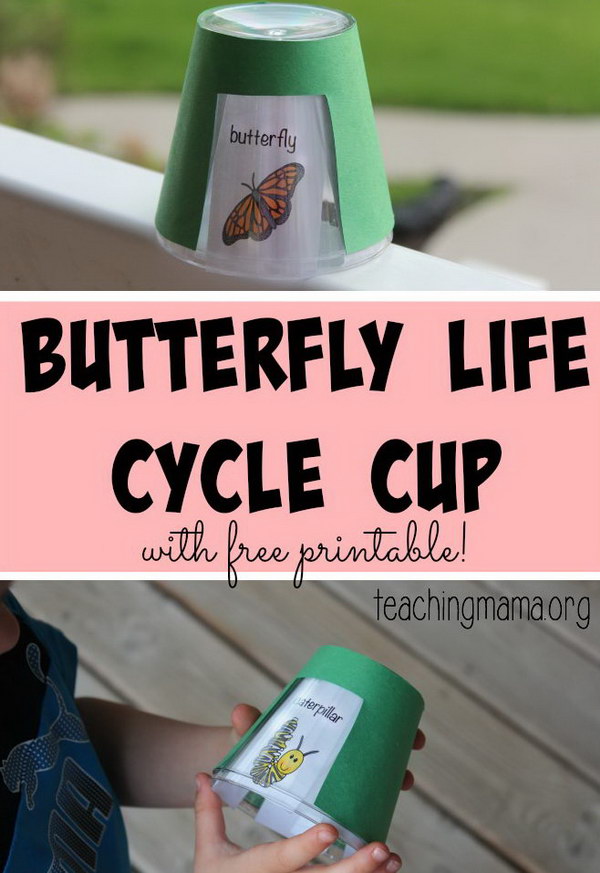
This is yet another ingenious way to teach the butterfly life cycle to kids. The cup’s outer decorative layout has a window that reveals the stages of the cycle drawn underneath in a very visual and interactive way. source
3D Life Cycle Of A Butterfly Craft

This 3D project of a butterfly life cycle is very colorful and intuitive, as it’s meant for preschoolers. The circle is clearly divided and ordered. Four colorful figures stand for a butterfly’s 4 life cycle stages, making them more appealing for kids. source
Edible Butterfly Life Cycle
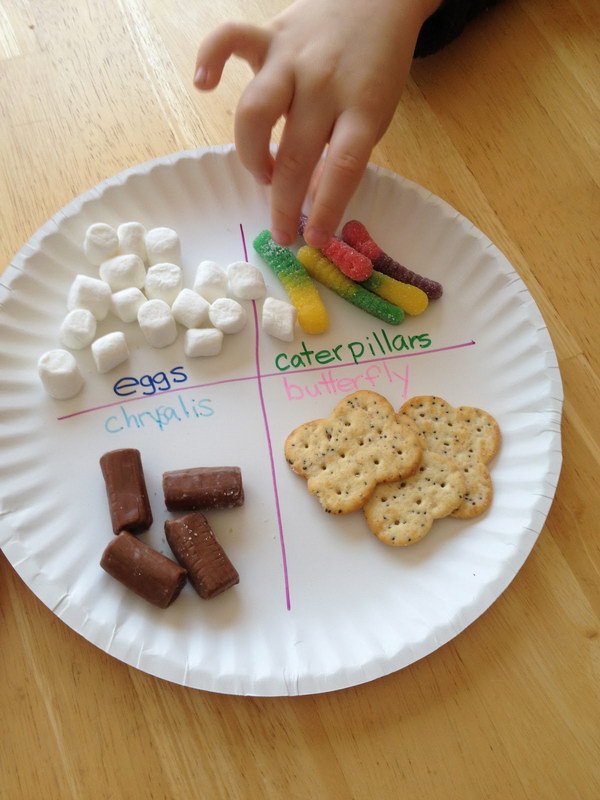
There aren’t many better ways of teaching kids than with food. This butterfly life cycle is made from some of kids’ favorite snacks, including marshmallows for eggs, gummies for caterpillars, chocolate for the chrysalis and crackers to represent butterflies. source
Frog
While not everyone may know that, the life cycle of a frog is actually quite similar to that of a butterfly, so it is definitely something to be noticed and learned.
Frog cartoons are usually popular among kids, so it isn’t any kind of stretch to assume projects displaying and representing the life cycle of a frog will be a hit among the children.
Life Cycle of a Frog Lesson Plan and Activity
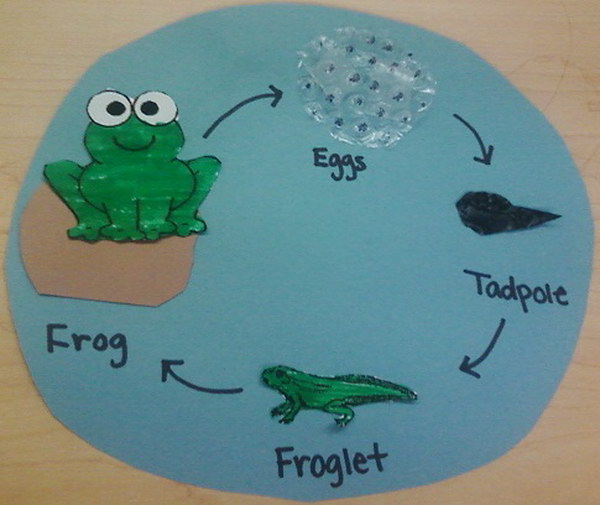
This little round art project is a great, dimensional and visual way to teach kids about the life cycle of a frog. The round shape with the arrows pointing towards the different drawings makes it possible for even smaller kids to understand the message. source
Frog Life Cycle Project Using Recycled Materials
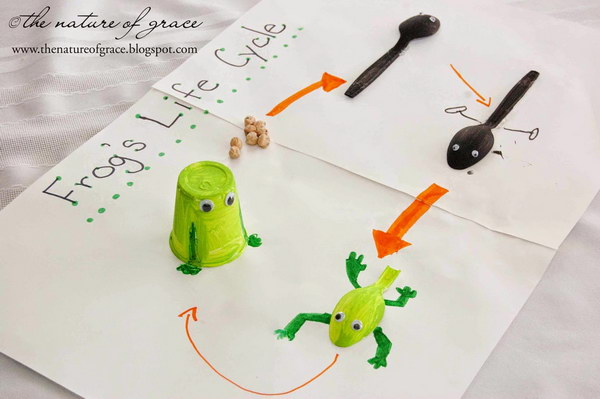
This frog life cycle model is another great DIY project that basically kills two birds with one stone, by teaching kids about frogs while encouraging them to use recycled materials to make the figures. source
Paper Plate Plant Life Cycle Spinner
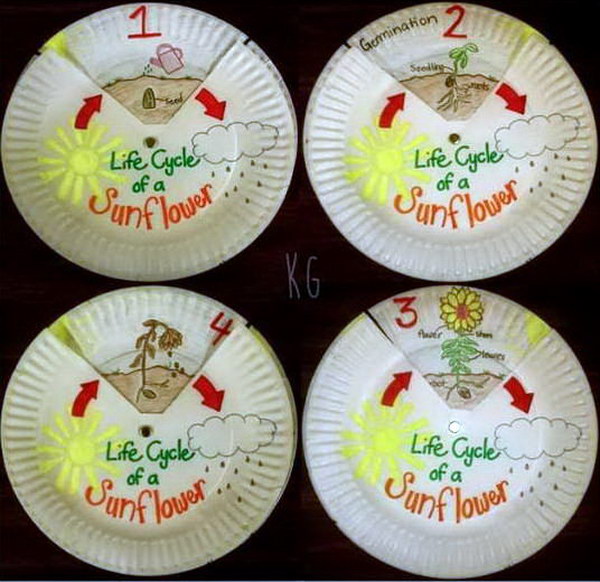
A spinner is always a great way to display a cycle or process, and it’s fairly easy to make with a paper plate. This one is the perfect tool for teaching kids about how frogs are born.
Plant
The life cycle of a plant is an essential tidbit of information that is usually taught to kids of school ages, if they don’t learn about it before then.
But even if kids love to watch real plants grow and bloom, their first introduction to the subject can and should be simpler than that. A plant life cycle project is the ideal way to make it happen.
Plant Life Cycle Craft

This dimensional, doodle-style plant life cycle craft is very cute and easy to make using coloring pencils. It’s not the most visual representation of the cycle itself, but the potted plant shape makes it pretty clear to see what it is about. source
Apple Life Cycle Flip Book
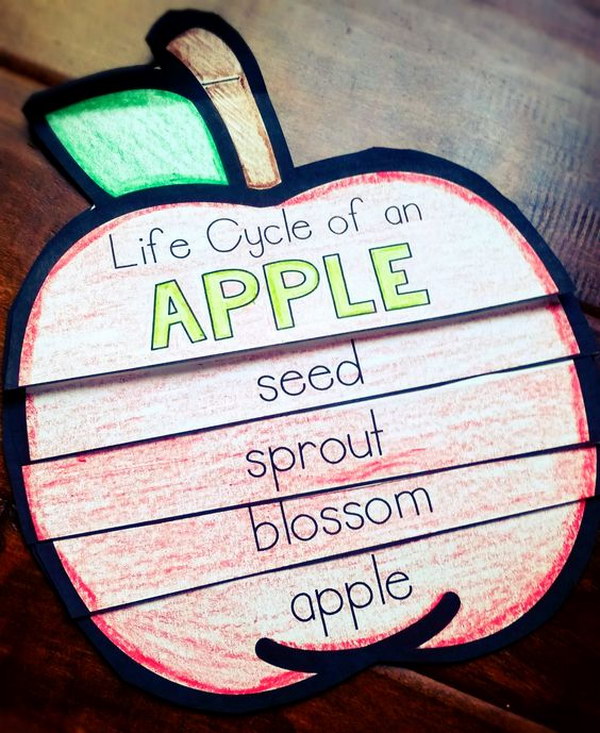
This apple flip book is a great way for kids to learn about the life cycle of plants. It is easily identifiable thanks to its overall shape, and it’s fun for kids to explore and learn with because they can flip through it to find information. source
Chicken
The life cycle of a chicken is similar yet very different from those of other animals. Chickens and their eggs are something kids are really used to and familiar with, but it is still important to teach them about how eggs turn to chickens, as the concept can be hard to grasp.
While keeping eggs would be the ideal way to illustrate this cycle, there are plenty of fun DIY projects that kids can help make and which easily send the message across.
Cute Craft for Life Cycle Of A Chicken
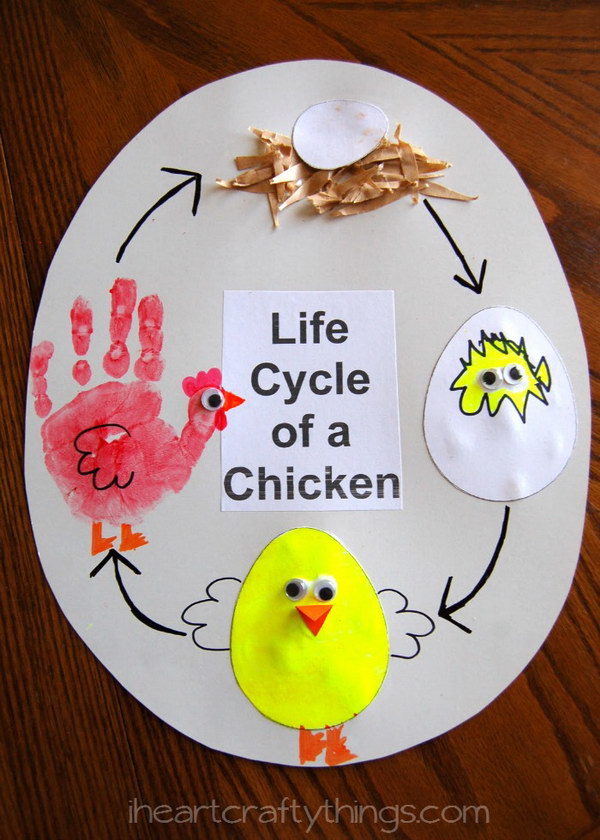
This cute, egg-shaped model shows kids the life cycle of chickens in a very visual, fun and textural way, thanks to the bright 3D figures used to represent each and every stage. source
Chicken Life Cycle Interactive Wheel
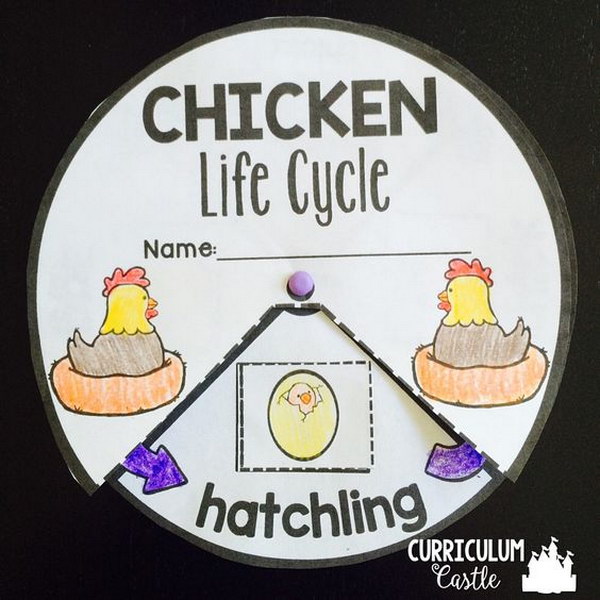
We’ve already talked about how great wheels are for teaching cycles and processes – in fact, they are also used to teach colors and even food groups – but it’s always good to stress how easy to make and interactive they are. All it takes to make this is cardboard, coloring materials and a pin. source
Lady Bug
Lady bugs are probably everyone’s favorite bug, due to their inoffensive nature, bright colors and polka dotted exterior. Lady bugs are not only cute but also very important for the life of plants and other animals of their ecosystem, so it is important for kids to learn about their life cycle in a fun way that makes justice to the bug’s appearance.
Lady Bug Life Cycle
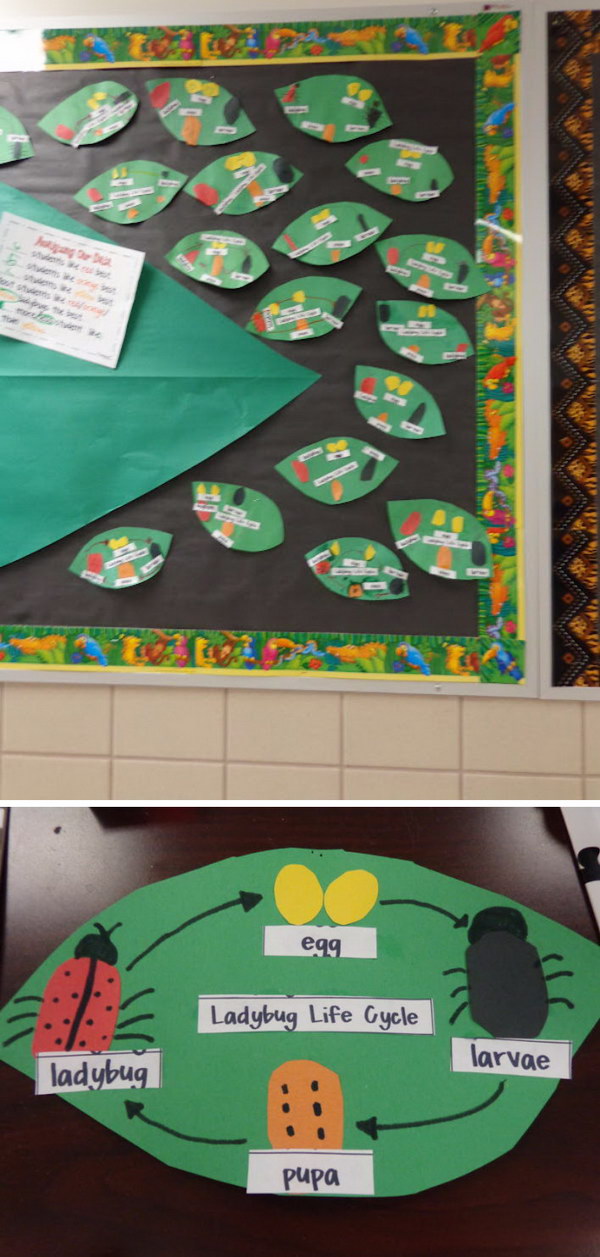
These leaf ladybug cycle diagrams are a unique way to display and visually represent this unique life cycle. The diagram used to represent the cycle is very clear but also cute and appealing, so it should be a great aid when trying to explain this life cycle to kids. source
